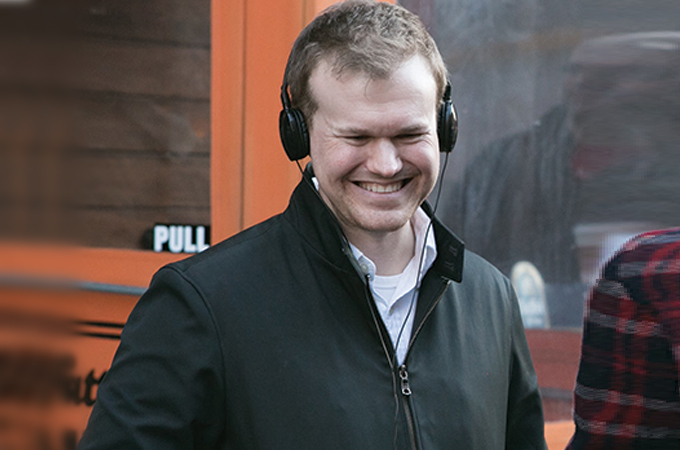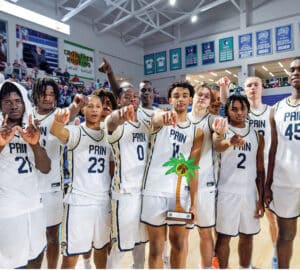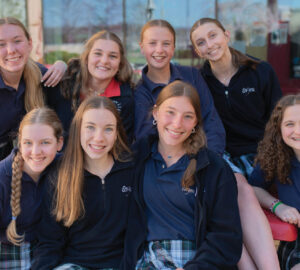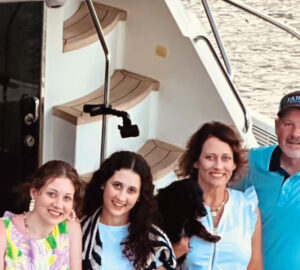Amy Schumer may be a household name, but the major player behind the scenes is St. Louisan Daniel Powell, her show’s co-creator and executive producer, who landed an Emmy this fall for Outstanding Variety Sketch Series. A Comedy Central veteran, he works closely with Schumer on Inside Amy Schumer and also has credits on The Daily Show and Ugly Americans. We caught up with Powell about his career and the modern comedy world.
T&S: How did you get your start in comedy?
Daniel Powell: As a house performer at the Upright Citizens Brigade Theatre in New York. I don’t perform anymore. It was an early phase in my career but not really what I wanted to do. I’ve always been more interested in what happens behind the scenes—writing, producing, directing and working with performers. After college at Dartmouth, where I fell into editing the humor magazine and did some improv, I headed to New York because I thought I had a job. That ended up falling through, so I went to a temp agency and told them I wanted to work in comedy. The first job they put me on was as a production assistant on Comedy Central.
T&S: Did you always want to be involved in comedy?
DP: Not comedy specifically. MICDS, my alma mater, had a thriving theater department. I performed a little, but mostly I worked in set building and props. That experience introduced me to the world of entertainment and performing arts. One teacher there, Milton Zoth, was a big influence.
T&S: What are your responsibilites as executive producer?
DP: I’m the project manager for the show. Basically it’s a lot of creative and administration oversight, ultimately to help make sure Amy’s vision is executed in the best possible way.
T&S: What’s your favorite part of the job?
DP: It’s really fun to get to make television for a living. There’s a lot of responsibility and stress, but I also work with some of the funniest, most creative people on the planet. When we’re in the writers room, it’s hard work, but we also spend the entire day laughing. Being able to work with people as talented as Amy has been amazing.
T&S: How much do you contribute to the sketches?
DP: I’m one of the credited writers, but I’m by far the least funny person on our staff. Our team includes standup comics and sketch writers who have written for SNL, various other well-written shows and even The New Yorker. It’s the Justice League of comedy writers. I help curate the process and contribute jokes and notes and ideas. I’m just honored to be in a room with these people.
T&S: What was it like winning an Emmy?
DP: Very exciting. I grew up watching SNL, so just to be nominated in the same category was an extraordinary honor, and to win was as surreal as it was exciting. From the moment they announce your name, it becomes very dreamlike. I have to go back and look at pictures to remind me.
T&S: Winning an Emmy is a huge honor—what else about the show are you proud of?
DP: Our writers room is more than 50 percent female, which in comedy writing is nearly unheard of. Very often they feel like they have to find one woman on the writing staff, and that woman’s point of view becomes novelty or niche, which is insane because women make up more than half the conversation. For certain popular comedy shows to just have one woman on a staff of 10 to 15 writers is ludicrous.
T&S: What do you think is exciting or groundbreaking about comedy today?
DP: There are so many platforms, from broadcast networks to premium cable to digital platforms like Amazon or Hulu, that there’s an avenue for every possible sense of humor. Even just 20 years ago, the only places you could program comedy were the big networks, so everything had to be as broad as possible to appeal to everyone. Sitcoms were all the same formula. Now there’s room for much more. And to have Comedy Central, where Amy can do a sketch comedy show that has a specifically feminist viewpoint that also is more R-rated and can get raunchy and absurdist—this isn’t a show we could have done 20 years ago. TV used to be kind of looked down on, and now I think it’s surpassed the film medium in terms of storytelling ability and the kinds of innovation we’re seeing.
Photo: Matt Peyton








